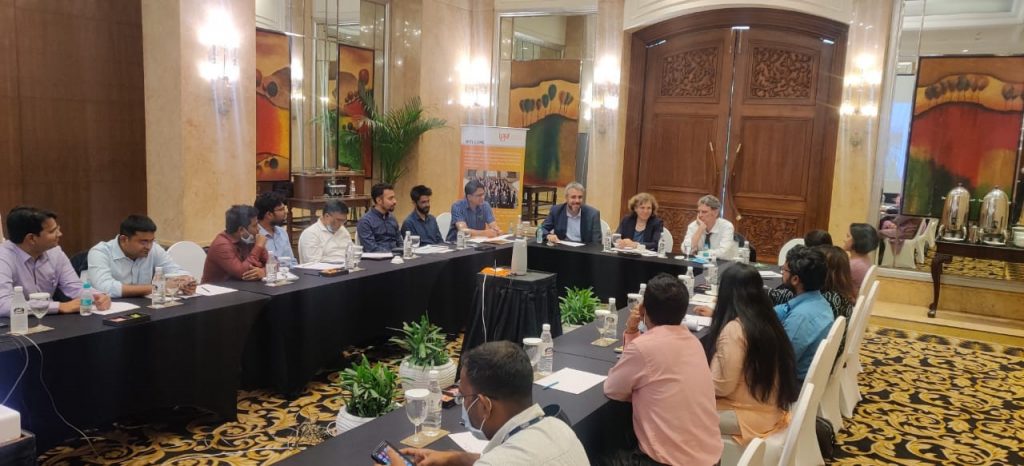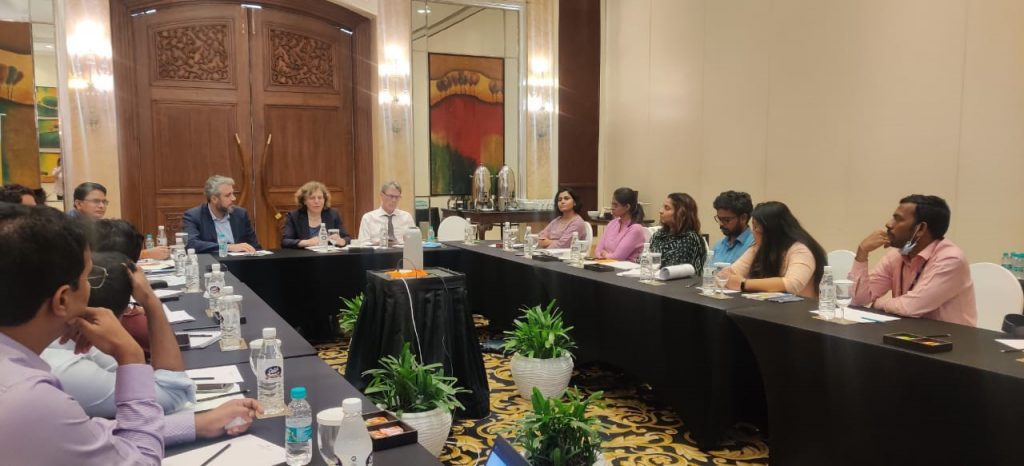India is in a frontrunner position for green hydrogen production
Aside from cheap renewable (and additional) electrical power, water is the second important resource needed for a country to become a global green hydrogen player. India checks both boxes. The country has a large coastline with access to seawater and ample sunlight for solar power: enough to put India in a frontrunner position for green hydrogen and PtX production.
Desalination plants could provide the country with enough freshwater to fuel the production of green hydrogen. Desalination, however, is a process that as many brings responsibilities as it holds chances with it. Desalination can not only provide sweet water for hydrogen production, but also for households and agriculture. Simultaneously, facilities need to ensure appropriate handling of the toxic brine that remains from the desalination process.
Prime Minister Narendra Modi unveiled the 25-year roadmap for hydrogen development in his address on India’s 75th Independence Day. He also announced the National Hydrogen Mission to meet the larger goal of self-reliance in energy production by the 100th Independence Day in 2047. “The thing that is going to help India with a quantum leap in terms of climate is green hydrogen. We have to make India a global hub for green hydrogen production and export,”. The Modi government is targeting to produce 5 million tons per year by 2030. To help achieve this goal, India provides tax breaks and allots land to set up plants.
With its high solar power capacities, India is one of the countries with a pole position when it comes to the production cost of green hydrogen: by 2025, green hydrogen is supposed to become cost- competitive with blue hydrogen, and by 2030 green hydrogen should have reached a production cost of 1 USD/kg (similar to Brazil).
Leveraging ongoing cooperations on energy between Germany and India
Since 2006, the Indo-German Energy Forum (IGEF) is a dialogue platform for high-level decision-makers in government, financial institutions, and industry under the leadership of the German Federal Ministry for Economic Affairs and Climate Action (BMWK) and the Indian Ministry of Power (MoP).
Two PtX.Trainings to address policy makers and local think thanks
India is also a partner country of the PtX Hub. With the Ministry of New and Renewable Energy (MNRE) and the German Government, the Indo-German Energy Forum and the PtX Hub organised the Renewable PtX.Training in India from June 22-24, inviting members of the Ministry of New and Renewable Energy, Ministry of Power, and state governments. India’s largest power sector utility NTPC Limited under the Ministry of Power further presented NTPC’S roadmap for green hydrogen.

The workshop was further facilitated by Mr. Tobias Winter, Director of the Indo-German Energy Forum. Ms. Stefanie Schmid-Lübbert, Head of Unit Bilateral Energy Cooperation Asia, BMWK and Mr. Rolf Behrndt, Principal Advisor, GIZ provided country-specific inputs.
Ms. Stefanie Schmid-Lübbert and Mr. Tobias Winter emphasised India’s excellent position for renewable energies: the sun always shines in the country (albeit in different places) and the windiest hours start towards evening, around 7 pm towards the night. The country can therefore exploit renewable energies at any time. Mr. Rolf Behrndt took the opportunity to point out the various support and financing programmes of GIZ in particular and German Government in general.

The PtX Hub held a second training in India two weeks later, on July 12-14 – this time inviting members of Indian think tanks such as the Council on Energy, Environment and Water (CEEW) Officials from the Ministry of New and Renewable Energy, Ministry of Power, NITI Aayog, Ministry of External Affairs and State governments partook in the session as well.
In the following transfer workshop, the participants used their gained knowledge to discuss the way forward with green hydrogen in India. Financing options, access to the European market and (future) regulations and binding standards were the focus of the conversation. During the course of the training, it became clear that standards and certification are of particular interest to the participants, who want to learn further about the subject.
